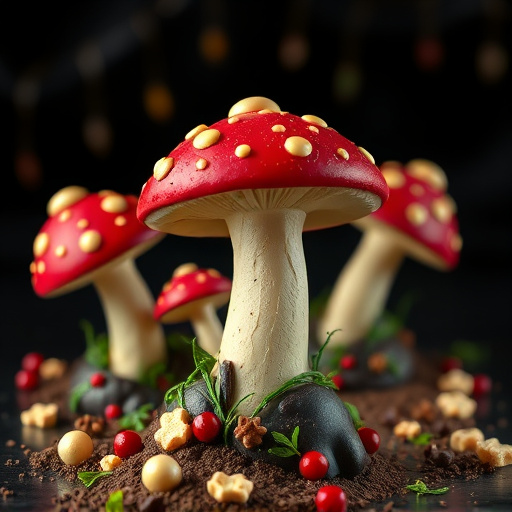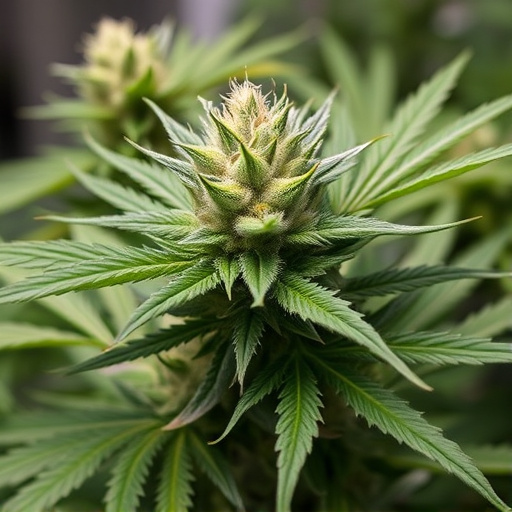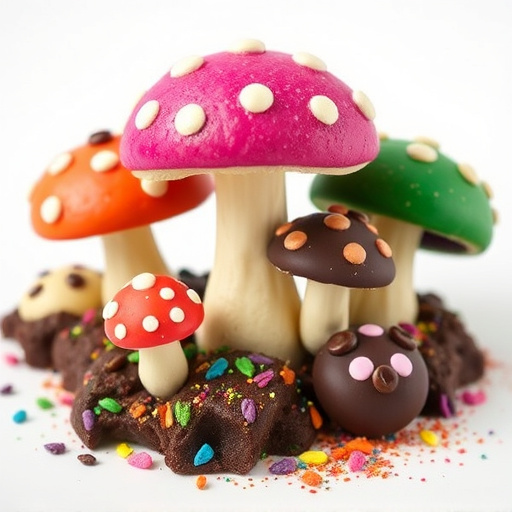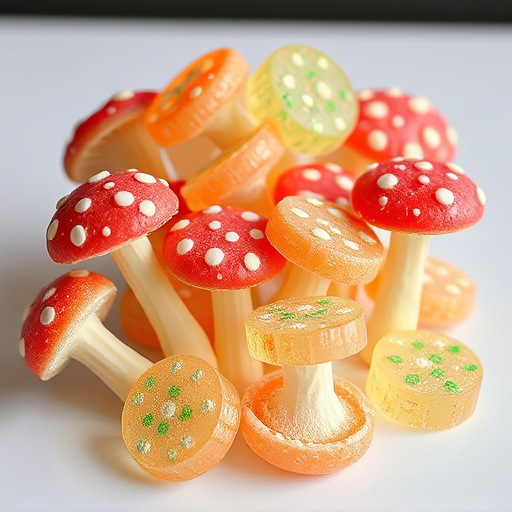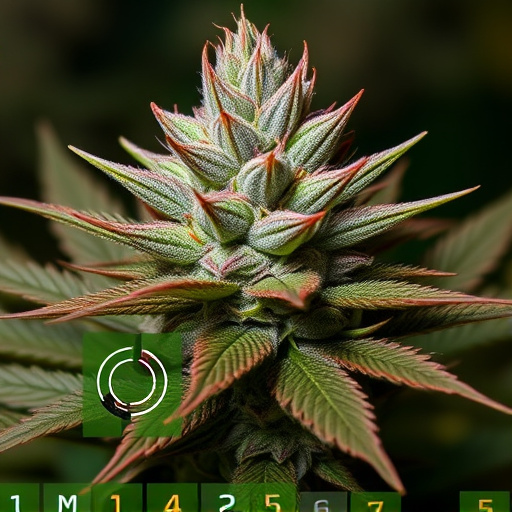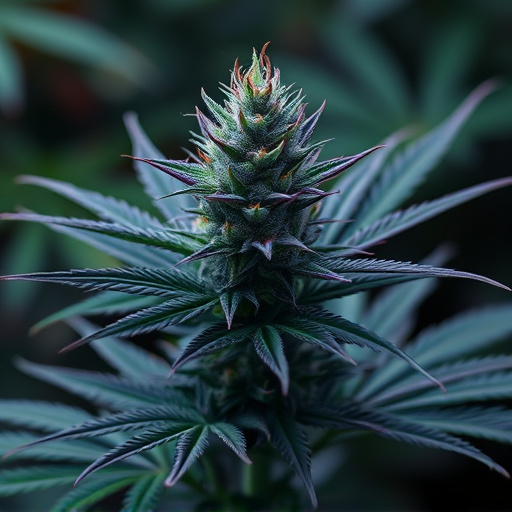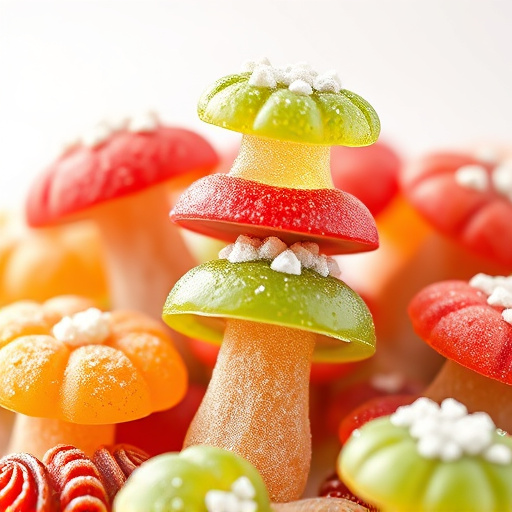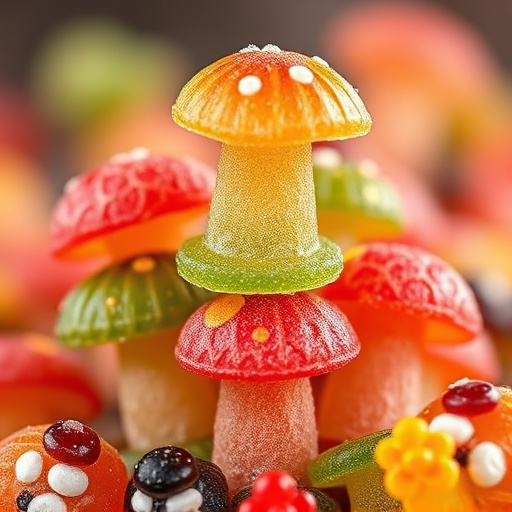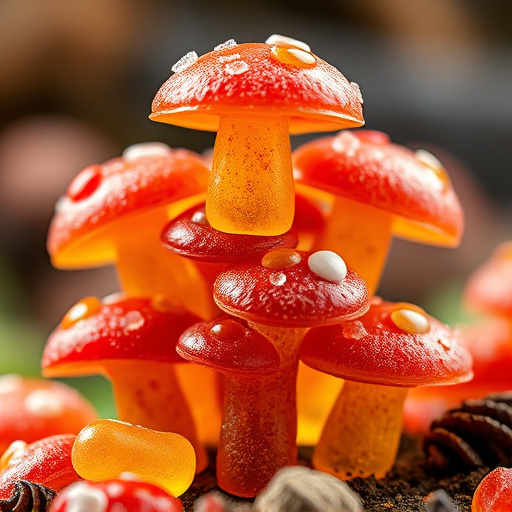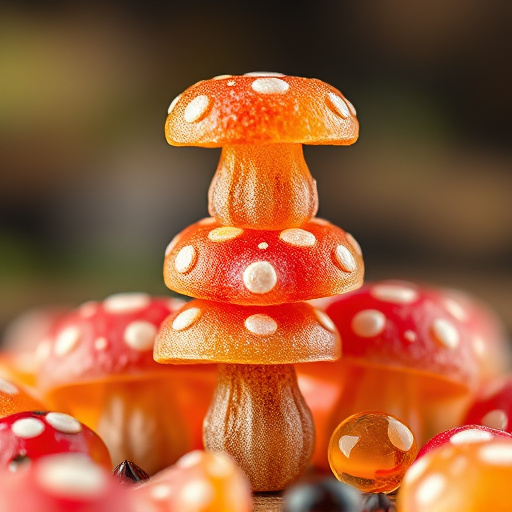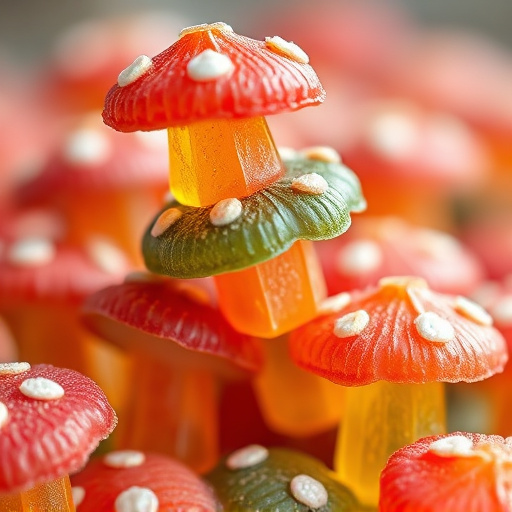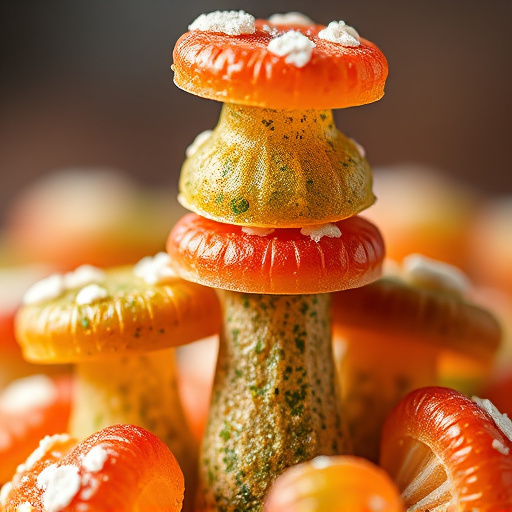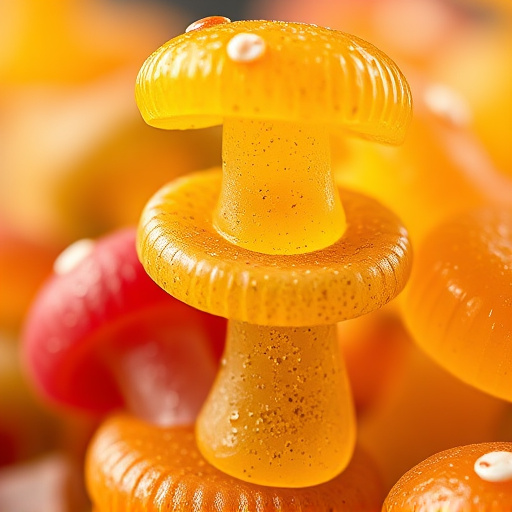Magic mushroom gummies, containing psilocybin, offer a legal alternative for experiencing psychedelic effects. With varying global legal statuses, some countries have decriminalized or legalized them for medicinal and recreational purposes, driven by research into their therapeutic benefits. Despite potential advantages like heightened senses and creativity boosts, as well as promising applications in treating anxiety, depression, and PTSD, risks include nausea and paranoia. The future of the legal status of magic mushroom gummies is uncertain but will be shaped by ongoing conversations around psychedelic therapy and societal attitudes. Safe and informed use within legal boundaries is crucial.
“Unraveling the strengths of magic mushroom gummies requires a nuanced understanding of their composition, effects, and global legal considerations. These edible psychedelics have garnered interest for both their potential therapeutic benefits and risks. This article explores the intricate world of magic mushroom gummies, delving into their active compounds, diverse effects on mind and body, and varying legal statuses worldwide. From relaxation to potential mental health applications, we balance the perspective on using these innovative products while emphasizing responsible consumption.”
- Understanding Magic Mushroom Gummies: Composition and Effects
- Legal Considerations: The Global Landscape of Magic Mushroom Gummies
- Potential Benefits and Risks: A Balanced Perspective on Using Magic Mushroom Gummies
Understanding Magic Mushroom Gummies: Composition and Effects
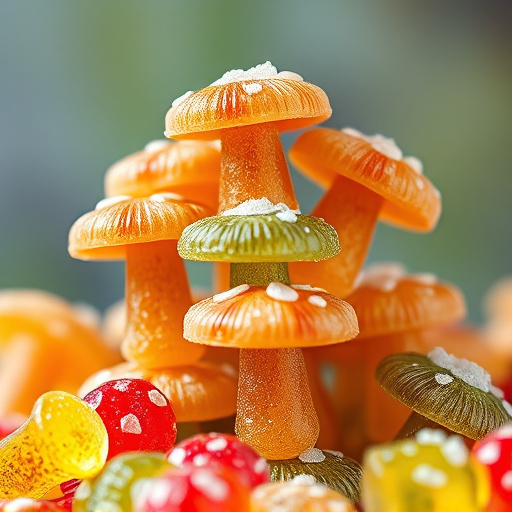
Magic mushroom gummies are a popular and modern twist on traditional psychedelic mushrooms, offering a convenient and often legal way to experience their effects. These edibles contain psychotropic compounds, primarily psilocybin, which is found in various species of mushrooms known for their mind-altering properties. The composition of magic mushroom gummies can vary, with different strains and concentrations available, ensuring users have control over their desired intensity.
The effects of these gummies are similar to those of other psychedelic substances, including heightened senses, altered time perception, and spiritual or mystical experiences. Users may report feeling an enhanced connection to nature, art, and music, as well as increased creativity and emotional awareness. However, it’s essential to acknowledge the variable nature of these compounds, as individual responses can differ greatly depending on factors like dosage, setting, and personal psychology. The legal status of magic mushroom gummies varies globally; some countries have decriminalized or legalized them for medicinal or recreational use, while others maintain strict restrictions, making accessibility and knowledge about their effects crucial for users in these regions.
Legal Considerations: The Global Landscape of Magic Mushroom Gummies
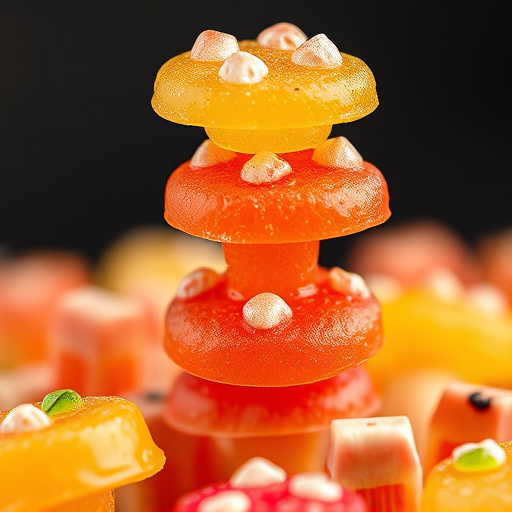
The legal considerations surrounding magic mushroom gummies vary significantly across global landscapes. In some countries, psilocybin-containing products like gummies are classified as controlled substances and carry severe penalties for possession or distribution. For instance, in the United States, federal laws categorize psilocybin as a Schedule I drug, indicating its high potential for abuse and lack of accepted medical use. Consequently, producing or selling magic mushroom gummies can lead to extensive legal repercussions, including fines and imprisonment.
In contrast, several countries and jurisdictions have taken steps towards decriminalization or even legalization of psilocybin-based products. The growing body of research highlighting the therapeutic benefits of psilocybin has influenced policy changes in places like the Netherlands and certain states within the U.S., allowing for limited medical use or experimental trials with strict regulations. As the global conversation around psychedelic therapy continues, the legal status of magic mushroom gummies is expected to evolve, reflecting shifting societal attitudes and scientific insights.
Potential Benefits and Risks: A Balanced Perspective on Using Magic Mushroom Gummies
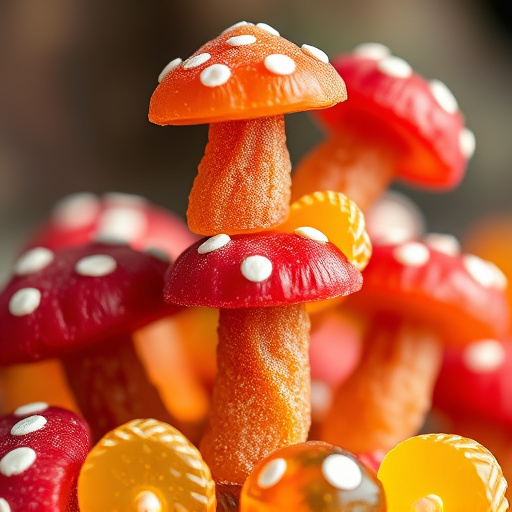
Magic mushroom gummies, while sounding like a novelty, offer more than just a sweet treat. These edibles contain psilocybin, the active compound found in magic mushrooms, known for its potential therapeutic benefits. In terms of effects, users may experience heightened senses, increased creativity, and a profound sense of well-being. Some even report that magic mushroom gummies can help alleviate symptoms of anxiety, depression, and PTSD, providing a novel approach to mental health treatment. The legal status of magic mushroom gummies varies globally; in some places, they are completely illegal, while others have decriminalized them for personal use or established medical programs.
However, it’s crucial to balance the potential benefits with the risks. Like any substance, magic mushroom gummies can produce adverse effects, including nausea, paranoia, and a distorted sense of reality. Long-term effects are not yet fully understood, and individual reactions can vary widely. It’s important to approach these compounds with caution, especially considering their legal status. The use of magic mushroom gummies should be informed by scientific research and guided by professionals, ensuring a safe and beneficial experience while navigating the complex legal landscape surrounding these substances.
The legal status of magic mushroom gummies varies globally, reflecting a complex balance between potential benefits and risks. As awareness and research grow, so does the need for informed, responsible usage. Understanding both the composition and effects of these products, as well as their legal considerations, is crucial to navigating this evolving landscape. While they hold promise for therapeutic applications, it’s essential to approach magic mushroom gummies with caution due to potential adverse reactions. Further study and open dialogue are necessary to unlock their full potential while ensuring consumer safety.
